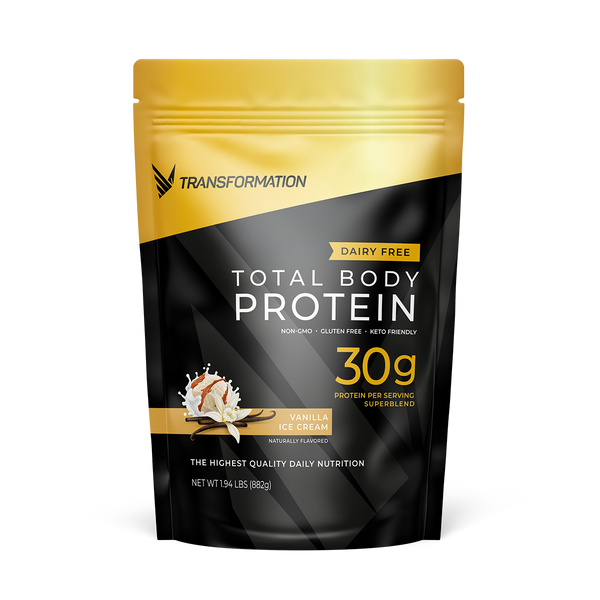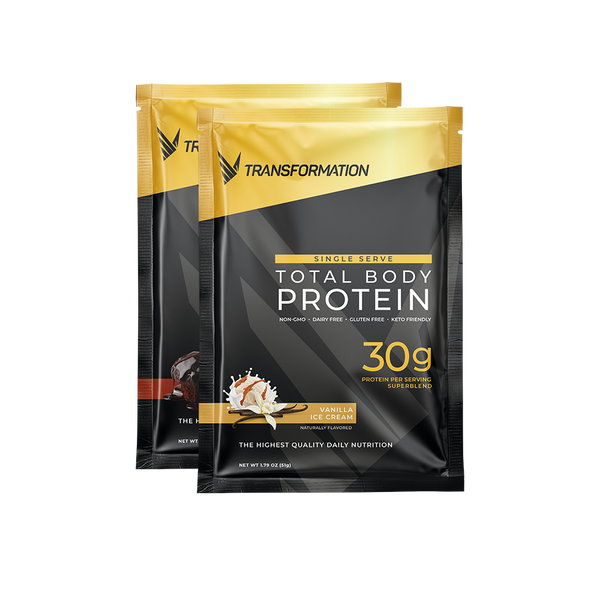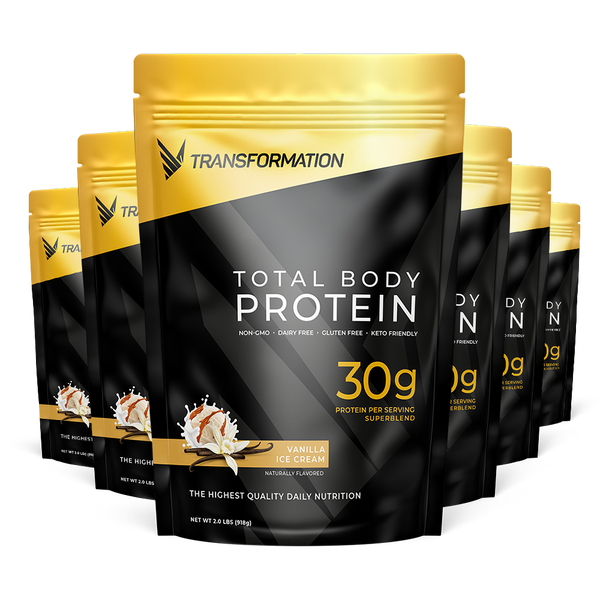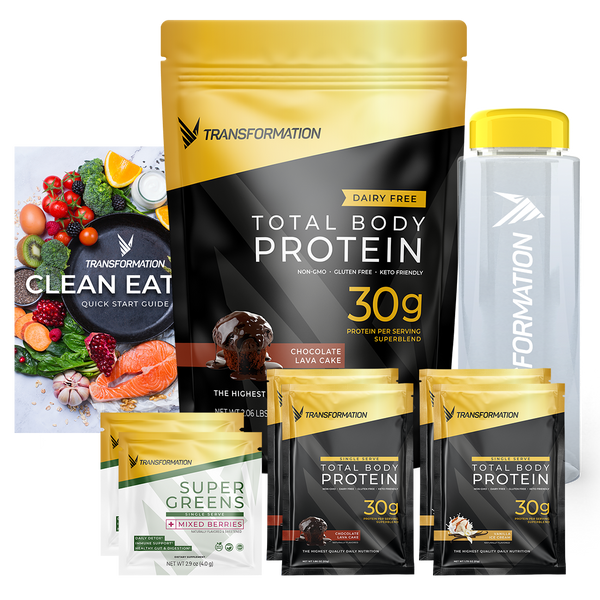
Collagen Protein vs. Whey Protein: An Honest Comparison
A Brief History of the Heated Debate Between Collagen Vs. Whey
Whey has been used by athletes for decades as a protein replacement, building muscles, and also muscle building. The concept of isolating biologically active collagen didn’t start happening until the1960s. For the most part, whey has been one of the most common protein supplement sources for decades. It’s a tried-and-true protein supplement in the fitness industry, while collagen is basically the new fad. The debate really is whether collagen can offer the same benefits for athletes––or if its power simply stops at hair and skin.
Whey has traditionally been the longstanding choice of protein supplements because it’s easily sourced and builds/repairs muscle readily. It wasn’t until the 1980s that scientists began deriving active, whole collagen peptides from fish skin. Unlike the collagen supplements from the 1960s, this advance in collagen peptides made it much more usable by the human body. And this sparked the rivalry between collagen and whey. Which one should you use? What is the difference between collagen and whey protein? Can you use both? And which one is better?
What Is Collagen Protein?
Collagen-based proteins are non-dairy protein powders that can be used almost identically when compared to whey protein powders. As we age, our bodies need more collagen, to replace what we use naturally. We require extra collagen either through certain foods––and eventually with collagen supplements––as the body gets older and becomes less efficient at its own natural production. Collagen is needed for effective soft tissue, bones, and joints. It also helps your body recover from workouts and can actually can aid in building muscle.
When sourcing a collagen protein powder, it’s important to consider some key factors:
- Ingredients
- Clean, organic, no artificial flavors/colors, you don’t want any unnecessary filler ingredients.
- Types of Collagen
- It should ideally be a mix of types I, II, and III for best results.
- Hydrolyzed collagen peptides are the most readily bioavailable and easily digested by your body.
Collagen offers a myriad of benefits. It doesn’t just support healthy muscle growth; it also promotes healthy skin, joints, tendons, ligaments, hair, and nails. Plus many collagen supplements have the added benefits of probiotics. This helps support gut health by keeping it all in balance. Meanwhile, dairy-based products that can cause GI distress or trigger dietary sensitivities/allergies. A large number of athletes experience bloating, gas and indigestion from whey-based proteins. But many don’t realize that their whey protein is the cause of these digestion issues. This makes collagen peptides a better option for some people.
What Is Whey Protein?
Whey protein is one of the most well-established protein supplement sources. Many protein powders rely on whey as the main ingredient supplying the grams of protein. This protein isolate is a byproduct of cheese making. This means they also contain lactose, making it a dairy product that can be challenging for some people to digest.
As food science advances, animal products are not necessarily the best option. Sometimes, it can be tricky to source a clean, healthy whey protein. That’s because many manufacturers try to incorporate cheap, unhealthy ingredients in their whey protein powders to save costs during production. Here are a few examples:
- Non-grass-fed/hormone raised cattle
- Heavy metal toxins
- Cheap, nutritionally void fillers
- Artificial ingredients
- Artificial flavors
- Artificial colors
So while clean whey protein can be one of the most effective sources of protein supplementation, it can be challenging to find a cost-effective option. Plus, because it includes lactose naturally, it can trigger dietary sensitivities/allergies. These can lead to a range of negative side effects like bloating, indigestion, etc.
Which can indicate that your body isn’t effectively absorbing all the supplemental nutrients that you’re feeding it.
Who Wins the Collagen Protein vs. Whey Protein Battle?
When comparing and contrasting the two options, generally collagen-based or non-dairy proteins are ultimately a better option. Whey has traditionally been the frontrunner for protein supplements. But hydrolyzed collagen peptides are slowly starting to dominate athletes’ preferences. That’s because collagen-based protein powders now come in complete forms that are readily bioavailable and easy for the body to digest. Plus, collagen comes with a whole host of additional benefits that whey can’t compete with. It is necessary to begin supplementing with collagen as the body ages because your body needs more of it for strong, healthy joints and muscles.

Collagen FAQs
Q: Is collagen protein better than whey?
A: Ultimately, they’re very similar in performance and how they can help the body. However, whey protein contains lactose, which has become increasingly disruptive in the GI tract for many people. This is why we support a nondairy or collagen protein choice over whey.
Q: Does collagen protein build muscle?
A: Yes! Luckily, like many other proteins out there collagen ultimately builds muscle. That’s because the more you exercise, the more you create mini tears in the muscle. When your body uses protein sources, like collagen, to repair those tears that is what ultimately builds more muscle volume.
Q: Is collagen safe to take everyday? Even if I’m not working out?
A: Absolutely. Collagen is a recommended daily practice for those over 35years of age, especially if you don’t think you’re getting enough through foods in your diet. Beyond a regular exercise routine, collagen helps keep your joints healthy.
Q: Is collagen protein a dairy-free protein powder?
A: This depends on which brand you are choosing. Nearly all of them are, as collagen does not technically contain any lactose. Just check the ingredients labels to ensure there are no dairy-based products included in your supplements. However, collagen proteins are not really vegan-friendly. This is because complete protein powder from only plant-based ingredients.
Q: Can I get all the protein I need from collagen protein powder?
A: As long as your collagen protein powder has a complete amino acid profile, then yes! However, we highly recommend adding in a nondairy, egg white-based protein to make sure you’re getting all the EAAs & BCAAs that your body needs.
Q: Is all collagen the same?
A: No! You should opt for a collagen peptide blend that offers a complete amino acid profile and includes the different types of collagen for the best results. Multi-collagen peptides are definitely better than the rest.
Stick to High-Quality Nondairy Protein Powders for Optimal Gut Health & Muscle Growth
Whey has traditionally been one of the most popular and effective protein supplements, but not without potential side effects or downsides. Now, thanks to advances in food science, collagen protein sources have become cleaner, cheaper, and more effective than ever. You can hit all the benefits of a whey protein and what it can do for your muscles in a collagen powder supplement. PLUS the benefits of collagen can also make your hair, skin and nails more youthful, as well as keep your joints healthy. If you are in the debate at all yourself, definitely do collagen over whey! Try Transformation’s Collagen Peptides powder, which is a superior multi-collagen type blend that contains your daily dose needed to maintain radiant skin, strong nails, healthy hair, and joints. It’s perfect for both women & men.






